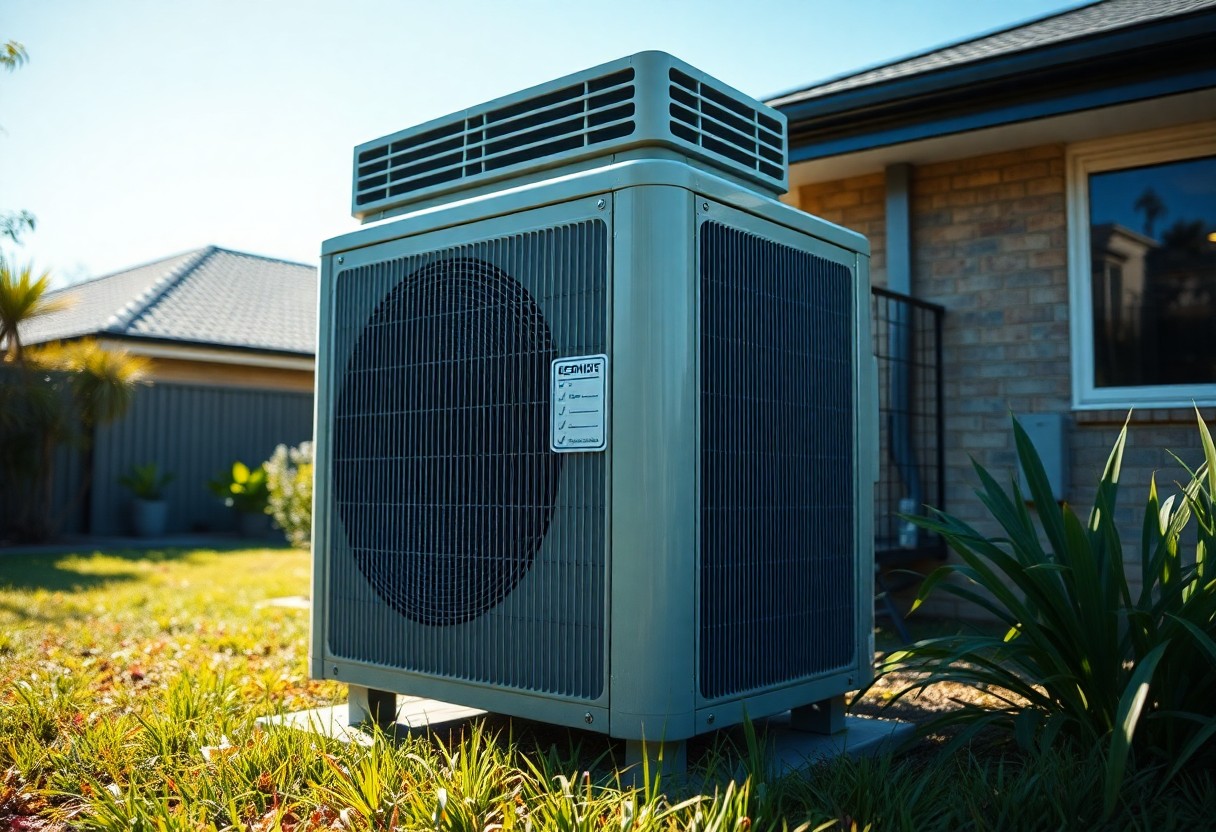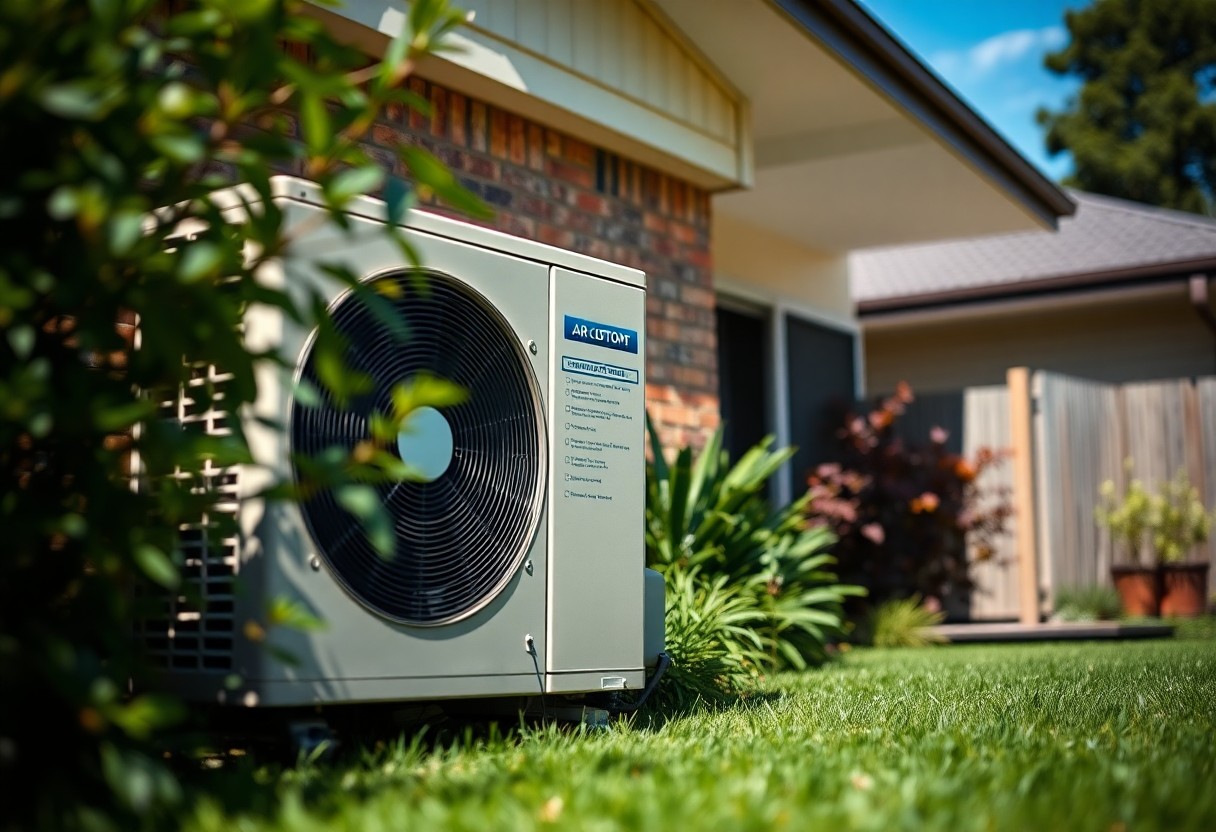Stay Frosty, Brisbane Northside – Your Local Air Conditioning Checklist for 2025
There’s no better time than now to ensure your air conditioning system is fully prepared for the sweltering heat of Brisbane’s summers. In this informative blog post, you’ll discover a comprehensive checklist that will guide you through crucial maintenance tasks and upgrades for your air conditioning unit in 2025. By following these tips, you can enhance the efficiency of your system, keep your home comfortable, and make informed decisions about your climate control solutions.

Key Takeaways:
- Regular maintenance is necessary for optimal air conditioning performance throughout the year.
- Look out for signs of wear and tear, including unusual noises or decreased efficiency in your system.
- Ensure that your air filters are cleaned or replaced regularly to improve air quality and system longevity.
- Consider upgrading to energy-efficient models to save on electricity bills and reduce environmental impact.
- Stay informed about local HVAC services for timely repairs and seasonal tune-ups to keep your system running smoothly.
Proactive Maintenance Strategies for Longevity
Proactive maintenance enhances the lifespan and efficiency of your air conditioning system. By implementing regular inspections, cleaning, and timely repairs, you can minimize unexpected breakdowns and reduce energy costs. This approach ensures that your unit operates smoothly year-round, keeping your indoor environments comfortable regardless of the season.
Seasonal System Inspections
Your air conditioning system deserves a thorough inspection at the start of each season. This process includes checking refrigerant levels, evaluating electrical connections, and inspecting components for wear and tear. Conducting these inspections proactively helps identify potential issues before they escalate, ensuring optimal performance during peak usage months.
Essential Cleaning Techniques
Regular cleaning keeps your air conditioning system running efficiently and prolongs its lifespan. You should clean or replace air filters every month, as clogged filters restrict airflow and reduce efficiency. Additionally, inspect the evaporator and condenser coils for dirt or debris; a clean coil can increase efficiency by up to 30%!
Energy Efficiency Hacks for 2025
Enhancing energy efficiency in your air conditioning system can lead to significant savings and environmental benefits. Look into the latest technologies and energy-saving practices that can lower utility costs without sacrificing comfort. Learn how adopting smart habits and tools can optimize your system’s performance by checking out this informative guide: Get Ready for the Heat: Your 2025 Summer HVAC …
Next-Gen Thermostat Features
Next-gen thermostats offer impressive features such as adaptive scheduling, energy usage reporting, and remote access via smartphone apps. These intuitive devices learn your preferences over time, adjusting temperatures automatically to maximize comfort while minimizing energy consumption. By taking advantage of these intelligent features, you can effectively lower your energy bills and reduce your carbon footprint with ease.
Choosing the Right Energy-Effective Unit
Selecting an energy-efficient air conditioning unit involves considering metrics such as the Seasonal Energy Efficiency Ratio (SEER) rating. Units with higher SEER ratings consume less energy, providing significant long-term savings and better environmental performance. Look for ENERGY STAR certified models to ensure you’re making a sound investment that will serve you well into the future.
When choosing an energy-efficient unit, assess your space requirements and climate conditions. An oversized air conditioner may cool your home too quickly, leading to higher energy usage and moisture issues. Conversely, an undersized unit will overwork, reducing its lifespan. Take the time to conduct a load calculation or consult with professionals to determine the perfect balance between size and efficiency, which will optimize performance and comfort year-round.
The Impact of Climate Change on Cooling Solutions
Your air conditioning needs are changing as climate change intensifies. Rising average temperatures increase the demand for efficient cooling solutions, forcing you to reassess your current systems. Adaptability is vital; select energy-efficient models that can handle extremes while also being kinder to the planet. The shift towards sustainability means investing in technologies that not only keep you comfortable but also minimize environmental impact.
Adapting to Higher Temperatures
| Challenge | Solution |
|---|---|
| Increased cooling demand | Opt for inverter technology that adjusts cooling output based on real-time needs. |
| Higher energy bills | Upgrade to energy-efficient units that have better SEER ratings. |
| Environmental concerns | Implement smart thermostats to optimize usage and reduce waste. |
Innovations in Eco-Friendly Refrigerants
Innovations in eco-friendly refrigerants are gaining traction as you look for ways to reduce your carbon footprint. New refrigerants, such as R-32 and R-454B, have lower global warming potentials while still providing effective cooling. These alternatives not only enhance the performance of your air conditioning systems but also comply with increasingly stringent regulations aimed at phasing out harmful substances. Making the switch to these refrigerants is a smart move to balance comfort and environmental responsibility.
R-32, for example, has a global warming potential that is approximately one-third of traditional refrigerants like R-410A. Its efficiency in heat transfer not only improves cooling performance but also reduces energy consumption. Additionally, manufacturers are increasingly incorporating these refrigerants into their systems, often coupled with advanced technologies like variable speed compressors, further enhancing energy savings and effectiveness. By choosing air conditioning units that utilize these advanced refrigerants, you contribute to a sustainable future without compromising your comfort at home.

Signs It’s Time to Upgrade Your Air Conditioning
Assessing whether it’s time to upgrade your air conditioning can save you comfort and money in the long run. Look for indicators such as rising energy bills, inconsistent temperatures, or unusual noises. If your unit struggles to maintain a comfortable environment or is nearing its lifespan of 10-15 years, these signs suggest you might need to consider an upgrade sooner rather than later.
Recognizing Performance Issues
Performance issues often manifest as fluctuating temperatures, excessive noise, or frequent breakdowns. If you notice your air conditioning system running constantly yet failing to cool your space effectively, or if it needs regular repairs, these could be red flags. A system that can no longer keep up with your household demands might indicate an upgrade is necessary.
Cost-Benefit Analysis of Upgrading Vs. Repairing
Evaluating the costs of repairing versus upgrading is key to making a smart choice. Consider how much you are spending on repairs each year; if it amounts to more than 50% of a new system’s cost, investing in an upgrade usually makes financial sense. Don’t forget to factor in the potential savings on energy bills from a more efficient model.
In practice, a cost-benefit analysis involves calculating the total expenses associated with ongoing repairs and pairing that with the anticipated savings from an upgrade. For example, if your old unit costs you $500 annually in repairs and an upgrade to a new high-efficiency model could save you $250 a year on energy bills, the upgrade pays for itself within just a few years. Additionally, many newer systems come with warranties and may offer tax incentives, further enhancing the financial justification for switching. Doing thorough research can empower your decision and ensure you maximize your investment in cooling solutions.
Local Resources and Experts in Brisbane Northside
Brisbane Northside boasts a wealth of local resources and experts who can help you navigate air conditioning challenges in 2025. Whether you’re seeking installation, repair, or maintenance services, you’ll find numerous options tailored to meet your specific needs. Keeping the local landscape in mind, it’s beneficial to connect with these professionals who not only understand the climate but also the unique requirements of homes in your area.
Trusted Service Providers
Identifying trusted service providers is important for ensuring your air conditioning system runs smoothly. Local companies like Northside Air and Brisbane Cool offer timely and reliable services, including installation and routine maintenance. They employ certified technicians armed with the latest industry knowledge, ensuring your system operates efficiently and effectively, which is important during hotter months.
Community Recommendations and Reviews
Your best source for trustworthy providers often comes from community insights. Many Northside residents share their experiences online through platforms like Facebook groups and local forums, providing valuable feedback on service providers. This peer-driven approach often uncovers hidden gems—companies you might not find through traditional advertising.
Community recommendations play a significant role in guiding your choices. Many platforms allow you to see not only ratings but also detailed reviews, which can shed light on the quality of service you can expect. Photos from past projects and testimonials will give you an idea of what fellow residents loved or found lacking. Engaging with local social media groups can provide real-time experiences and suggestions, ensuring you make informed decisions based on trusted neighborhood insights.
Final Words
Taking this into account, ensuring your air conditioning system is ready for 2025 requires a proactive approach. By following your local air conditioning checklist, you can enhance your system’s efficiency, extend its lifespan, and maintain optimal comfort in your home. Regular maintenance, timely repairs, and smart upgrades will keep your unit performing at its best. Stay informed and make the right choices for your air conditioning needs, so you can enjoy the cool comfort you deserve throughout the hot months ahead.
FAQ
Q: What is the main focus of ‘Stay Frosty, Brisbane Northside – Your Local Air Conditioning Checklist for 2025’?
A: The main focus of this checklist is to provide Brisbane Northside residents with a comprehensive guide to maintain and optimize their air conditioning systems in 2025. The checklist includes crucial tasks, maintenance tips, and recommendations for selecting energy-efficient units to ensure a comfortable indoor environment throughout the year.
Q: How often should I perform maintenance on my air conditioning unit according to the checklist?
A: The checklist suggests performing maintenance on your air conditioning unit at least twice a year. This includes cleaning or replacing filters, inspecting refrigerant levels, checking for leaks, and ensuring that all components are functioning correctly. Regular maintenance can help improve efficiency and extend the lifespan of your unit.
Q: Are there any specific signs that indicate my air conditioning unit needs immediate attention?
A: Yes, the checklist outlines several signs that your air conditioning unit may require prompt servicing. These include unusual noises, poor airflow, increased energy bills, and inconsistent cooling. If you encounter any of these issues, it’s advisable to contact a professional technician for further evaluation.
Q: What energy-efficient features should I look for when purchasing a new air conditioning unit?
A: When purchasing a new air conditioning unit, the checklist recommends looking for features such as a high Energy Efficiency Ratio (EER), inverter technology, programmable thermostats, and variable speed settings. These features can significantly reduce energy consumption and lower your electricity bills in the long run.
Q: Does the checklist provide any tips for reducing energy consumption while using air conditioning?
A: Yes, the checklist includes several practical tips for minimizing energy consumption while using air conditioning. Suggestions include setting the thermostat to a moderate temperature, using ceiling fans to circulate air, ensuring proper insulation in your home, and strategically closing blinds or curtains to block out heat during peak sunlight hours.
